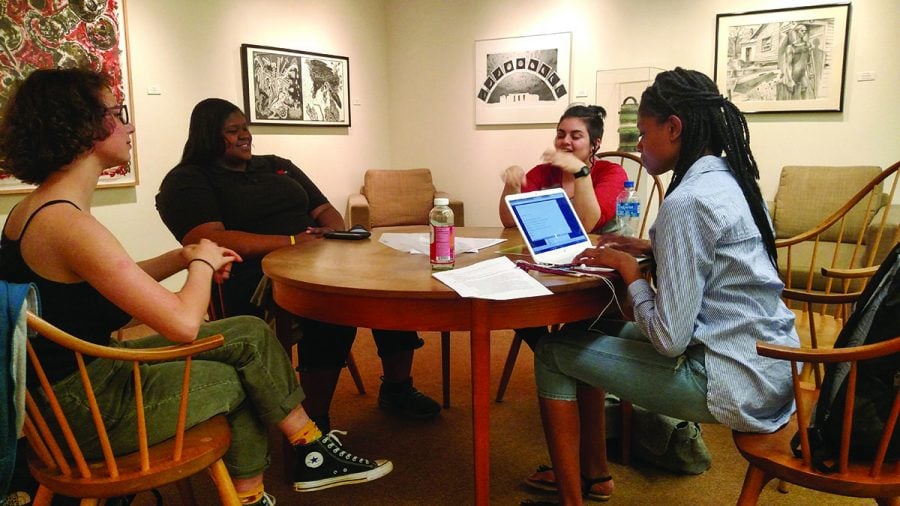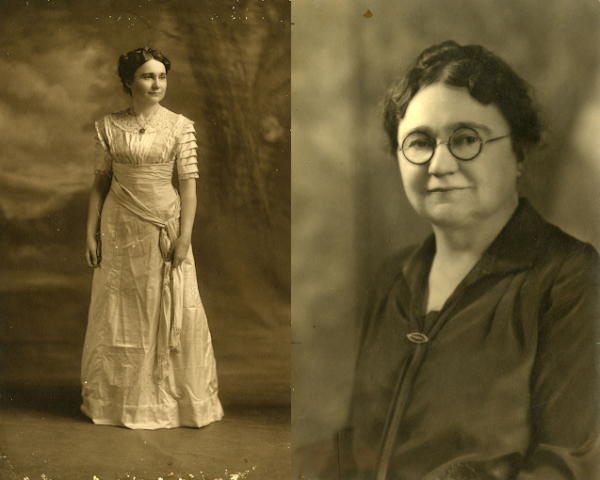New initiative hopes to make Guilford carbon-neutral
Members of Green Society discuss ways to make Guilford College the first carbon neutral college in the American south during a meeting. Photo courtesy of Matt Armstrong
“We are going to get Guilford to be totally carbon-neutral by 2030,” said The Green Society Leader and first-year Connor Potts.
The Green Society is a new student initiative, and members of The Green Society meet Wednesdays at 8 p.m. in room 215 of Dana Auditorium.
“The purpose is to become the first totally carbon-neutral campus in the American south,” said sophomore Tay Bomstein, another club member. “So we think that this initiative will not only be ecologically sound and environmentally sound, but it will also bring potential students to the school.”
The idea of making Guilford carbon-neutral was inspired by a non-fiction book, “The Unwinding: An Inner History of the New America” by George Packer, being read in a class taught by Part-Time Lecturer in English Matt Armstrong.
“We’re reading this book in my English 102 class and one of the characters, Dean Price, is a farmer and entrepreneur,” said Armstrong. “He comes from the Piedmont, and one of his projects is to use biofuel.”
Price came to Guilford and visited the class to discuss both his environmental work and ideas for Green Society.
“(The class was) paying attention to him and they were all asking questions,” said Armstrong. “He wanted to help the Green Society. I think he saw some of his ideas being reflected in their ideas.”
Members of The Green Society have worked together to create a plan for achieving their goals.
“We are trying to use solar panels and to put more of those up in the fields and on buildings,” said Potts. “We are also trying to use biodiesel fuel.”
In addition to using solar power, The Green Society also aims to grow a variety of plants that can be used for biodiesel fuel.
“What we were thinking about is growing hemp and possibly sunflowers and canola,” said Bomstein. “Hemp and sunflowers consume the excess carbon dioxide in the environment.
“No part of the hemp or canola would be wasted because the excess that’s left over from the oil-making process could be used to feed the chickens on the farm or turned into oil from hemp and has a lot of benefits for arthritis or anxiety.”
As part of their mission to be environmentally friendly, The Green Society is making sure that their waste products will be used for other purposes on campus.
“When you get the sunflower seeds, you would grind them up and you would get two parts, the oil and the meal,” said Potts. “The meal is what you would feed the chickens with and then you would separate the glycerin from the oil. The glycerin can be used to make soap or other health products.”
In order to be more successful, The Green Society is looking at the different aspects of their initiative and how they can get members of the Guilford community involved.
“If we all start imagining ways to offset carbon emissions, we will not only create ways to help the environment, but we will create ways to help students and help the community,” said Armstrong.
By making Guilford a carbon-neutral school, The Green Society also hopes to bring potential students to the school.
“We all care a bunch about the environment and we care about the future of our school,” said Potts. “We care about our school being successful, both financially and environmentally and so we have the best interests in our minds and we are trying to share that.”
The Green Society is looking for support from the Guilford community, and has a GoFundMe page as well as a petition, which can be found on The Green Society’s page on Change.org. The petition encourages the Guilford community to support the mission to make Guilford College the first all-green college in the south.
Members of the Guilford community are also welcomed to join The Green Society and bring new ideas to the group.
“We have a lot of ideas that we’re talking about, but we want this to be a campus-wide initiative,” said Armstrong.









